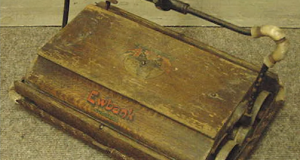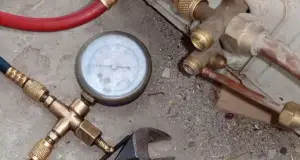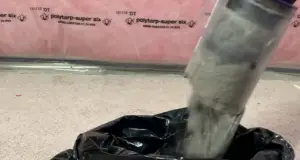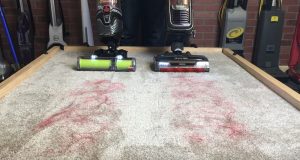Cleaning is an essential task that we must tackle. Regardless of whether it’s done three times a week or daily, maintaining cleanliness in our space is unavoidable.
There are days when we deep cleanse the house and our vacuum cleaners end up with full dust and dirt.
After all, who wants to live in a place full of dirt, dust, pet hair, and germs. Not us!
Many people are not aware of what to do with the vacuum dust, can it be composted? If yes, how? And if not, why? But before this, you should know if it has any effects on the environment, or even if it is compostable.
Surely, we don’t want our environment to be uninhabitable!
So, the question remains the same.
Can You Put Vacuum Cleaner Dust In The Compost
If you are a garden lover and you love greenery the most, you would know how important compost is to your soil. You have all types of dirt in your vacuum from cleaning windows, pet hair, dust from tables, carpets, and rugs.
And you are thinking of composting it in the soil? Would it be good for the soil?
Sadly it’s a NO if you don’t know what’s in your vacuum. But there is still a way out if you are unsure about whether you can still compost the dust you have in your vacuum.
There Are Two Types Of Vacuumed Materials
Non Organic Materials
As your dust would include non-organic materials such as synthetic fibers from carpets, plastics, nails, and everyday debris making it partially non-compostable.
Organic Materials
But if your vacuumed dust is all organic materials such as pet hair, human hair, skin flakes, breadcrumbs, then these are all compostable.
What Is A Good Compost Mix
A good compost mix is a blend of greens and browns which means grass cuttings, food waste, hair, leaves, flowers, sticks, and paper.
What Is Your Vacuum Picking Up
You need to make sure what goes inside of your vacuum dust, if it’s picking up all or mostly organic materials then you are good to go. But if it has non-organic materials, it would simply not compost ever.
However, twenty percent of the dust in your vacuum is synthetic fibers, with carpets at your place it would be more.
Composting Organic Materials
Organic materials such as human hair, pet hair, skin flakes in the vacuum dust can be easily broken down by microorganisms and bacteria. Which can easily compost with the soil in less time. So if the dust in your hoover is organic it is fine to compost without it affecting the environment. But if it is synthetic it is bad to compost. If these non-organic materials are composted with the soil they take up space and are a threat to organic materials composting and bacteria.
How To Compost
There is always a fine way to do everything, similarly, if you want to compost your dust from the vacuum cleaner in the soil it should be done properly. Don’t just drop it and leave it there. A lump would not mix it.
All you need to do is take a stick and mix it in the soil in the compost bin. Water the mixture and make sure it is blended in well with other compostable materials. And it will start to decompose with other materials already decomposing in it.
Many firms also recommend putting vacuum cleaner dust in the compost but only if it is organic. If you are not sure, just throw it in the heap.
However, while cleaning your place, if you have used some cleaning products as well, like cleaners for carpets or fresheners, then you cannot compost the lint from the vacuum cleaner. As chemicals won’t compost and are not even organic. This would only cause damage to the environment.
They won’t break down and will harm the bacteria and organisms found in the soil. It would not compost the soil as well as it would make the soil less productive. Which will affect growing the greenery, crops, or plants.
What Types Of Vacuum Cleaner Dust Can Be Composted
We should be very careful while we are composting any material in the soil as it will have a huge impact on the environment. We need to keep the environment safe, by recycling, reusing, and decomposing only the correct materials and that also effectively. This way the dust would be composted, as well as the environment, and won’t be affected in a bad way.
A Few Examples Of Things You Should Not Compost
- Meat Products
- Lumber
- Tea Bags
- Coffee pods
- Plastic materials
- Fertilizers
- Infected plants
Conclusion
So, after all the discussion we come to the point that we should only compost organic vacuumed materials and not non-organic materials to keep our environment safe and green. Only compost recyclable and compostable materials from your vacuum.




